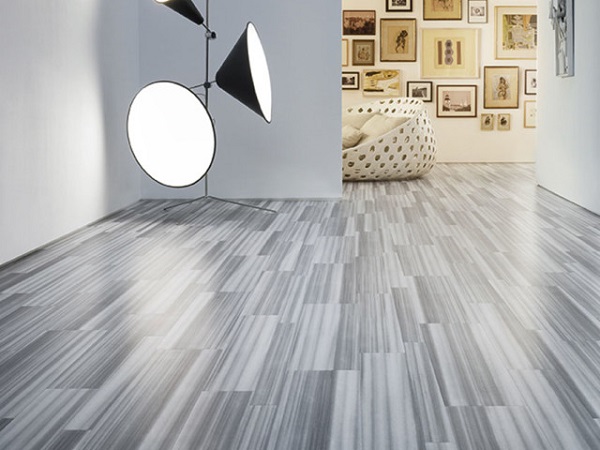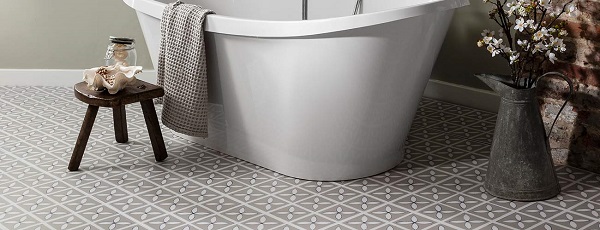03
Jun

Although the product of the late 1800s, vinyl became one of the more popular flooring solution in the 1950s. Its use has grown and expanded greatly due to its versatility, durability, ease of maintenance and low cost. So, if you are looking for a resilient flooring that can take a beating yet still look trendy and polished, go with vinyl. Ideal for both residential and commercial applications, vinyl flooring is available in wide array of styles, in either a form of tile or sheet.
Of course, the design you decide to go with will depend on your interior and room it is intended for. You can go for prints that imitate natural materials like wood or stone or you can combine different patterns and materials to create a unique design that adds interest and drama to a space. Vinyl is also very easy to install. With just few tools you can have a brand new floor. This may be one of the main reasons growing number of homeowners are opting for this type of flooring. However, majority of them focus on design and often overlook the more important matter – vinyl adhesive.
The right adhesive will ensure vinyl sticks to the surface. To ensure best results (and not to have to hire professionals), make sure you read and follow manufacturer’s instructions. For a successful installation it is important to consider different types of vinyl adhesive and choose one that will meet your requirements and needs.

Rubber resin adhesives are made from either natural or synthetic rubber and provide fairly good solvent resistance, hence are perfect for installing vinyl in high-traffic rooms. They are quite resilient and have flexible water resistant features and won’t crack easily.
Synthetic latex adhesive have great consistency and bond in a matter of seconds. With this adhesive you’ll install vinyl floor quickly and easily. Plus, there is no unpleasant ammonia odour common to other types of floor glues.
Filler adhesives contain polyurethane foam and are very easy to apply. They come in pressurised cans and have solid consistency. One disadvantage is that this type of adhesive is difficult to remove, so if you need to change or repair the floor, you will have to use a special solvent to remove it.
PVA (Polyvinyl adhesive) is very flexible and can be used for a wide range of flooring options. It is water resistant, it dries quite fast and doesn’t give off dangerous fumes or unpleasant odours. The polyvinyl adhesive provides easy application and ensures vinyl sticks immediately to the surface.
Besides choosing the right adhesive, to ensure you install vinyl floor correctly, you need a high-quality sealant that will ensure your flooring sticks perfectly to the surface and lasts you for many years to come. Acrylic mastic sealant is a popular option since it is very flexible and practical to use plus it’s available in various colours to match different flooring designs. Silicone sealants are widely used as well – they form a waterproof seal and are perfect for bathrooms and kitchens.